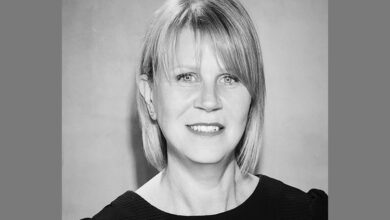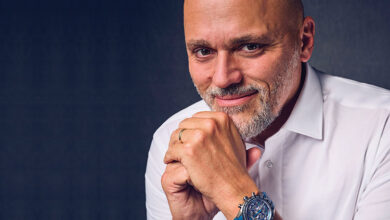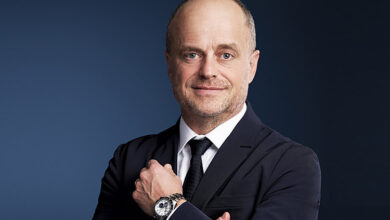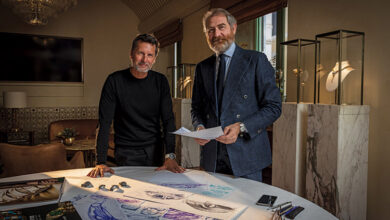Hublot: Brand-building in the desert
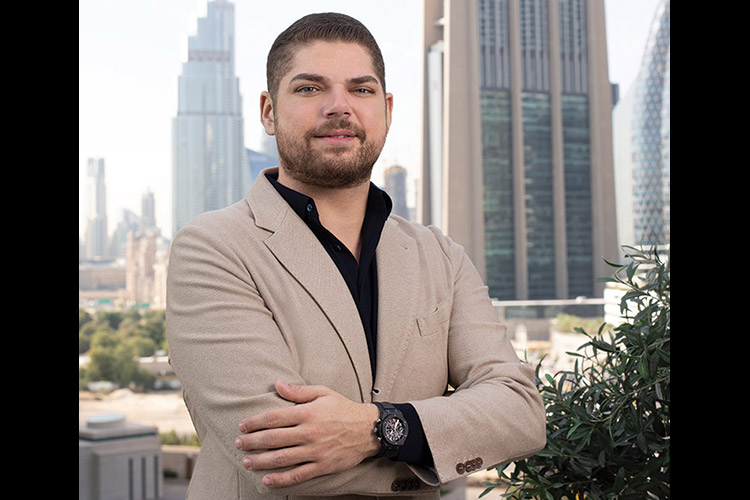
David Tedeschi – MENA Regional Director, Hublot – spoke to us during Dubai Watch Week about Hublot’s launch of the UAE Classic Fusion Concrete Sand, and how the marque is building up its presence in the region through activations current and in the future…
Can you first tell us about Hublot’s release of the new UAE edition this year?
To commemorate 50 years of the UAE, we had decided, along with Ahmed Seddiqi & Sons – our partners in UAE, to launch the Classic Fusion Concrete Sand. The name reveals almost everything about the watch – the case is made of concrete composite, and the dial is made of sand and it is encapsulated between two plates of sapphire. To continue the motif of UAE culture, the strap is made of a rubber base with a top of camel leather.
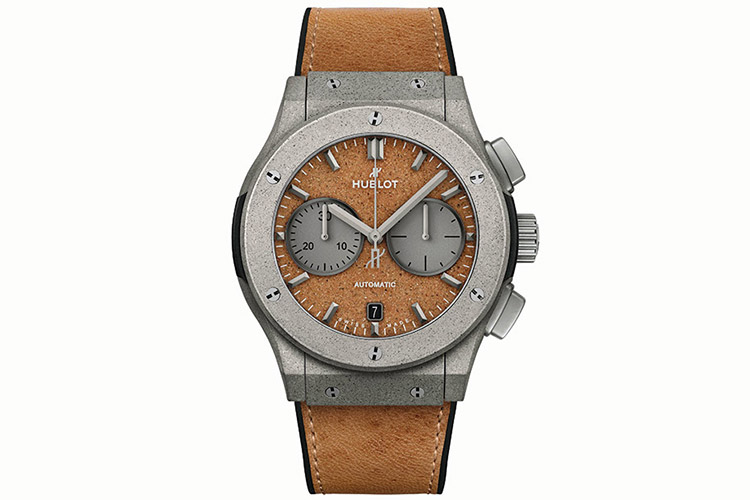
This is the first time Hublot has done an encapsulated dial?
For sand, yes this is the first time, but we are familiar with this process as we have already used it for the Berluti watches. Since there is a lot of humidity present in leather, we had to ensure that the leather remains the same and does not damage the movement.
Can you tell us about the concrete composite – what are its advantages and what makes it special?
Making the concrete composite is exactly the same process as making real concrete; in addition, we add to the alloy a special composite to maintain the state of the case over time so that it doesn’t get damaged nor are there pieces detached from the case. We basically use the same process that we use for carbon fibre or other materials. It is super light and that is what is really nice about this watch. It is also super-comfortable on the wrist.
Using camel skin for the strap is a totally new concept; how did you get the idea for this?
The idea actually came from Mohammed Abdulmagied Seddiqi, Chief Commercial Officer at Seddiqi Holding. We wanted to do something original, something not done before and indeed I have never heard of a watch strap made of camel leather. It was interesting to work on this kind of material that also represents the culture of UAE.
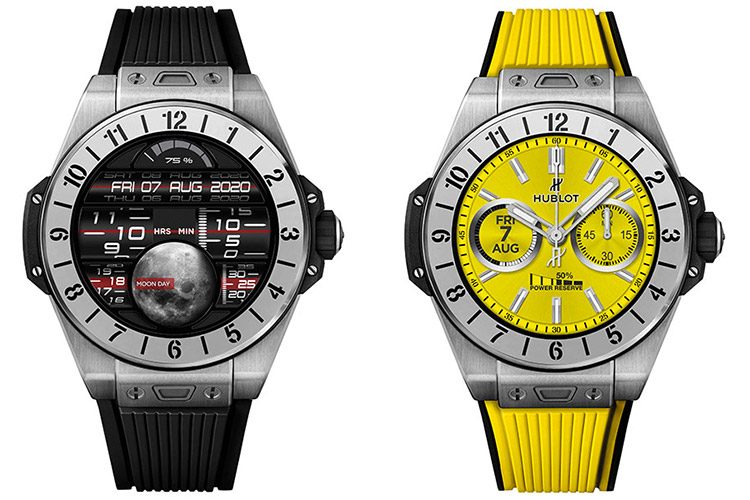
The watch is limited to 100 pieces and it sold out even before it was officially announced; what does that tell you?
It tells us that we have a huge base of local-based clientele that are always keen on buying our watches. They trust the brand and know what to expect from us.
With Dubai booming and the FIFA happening in Doha, Hublot must be having a lot of activations focused on the region?
The main activation next year in terms of a watch exhibition is going to be our physical participation in Watches & Wonders at the end of March and beginning of April, where we are going to launch most of our novelties. We will present a few novelties in January during LVMH Watch Week, but it will mainly be on a digital level and for the press, where we will introduce 5 or 6 models. It will be an event in which all of our watch brands, such as Zenith, Tag Heuer, Hublot and Bvlgari will participate.
On the activation level, we are already working on some very nice events that will take place all around the world next year. Since COVID happened, we have learned to approach things in a different manner. When the lockdown happened, we decided to keep the products we were supposed to launch at Baselworld, and punctually launched them digitally during the year. Now, we are trying to retain the digital approach but combine it with a 360° activation with both physical and digital. We are going to have events and different launches of new products throughout the year that will be held in different regions where we have our boutiques so that we can invite our clients to attend those events.
One of the main activations will be the work-up in Qatar, where we are targeting to invite more than 1,000 people to see the games during the World Cup. We will have really nice experiences; we are working on an amazing project – to have an activation, a Hublot camp in the desert. We are working hard on this, and you will see this with your own eyes.
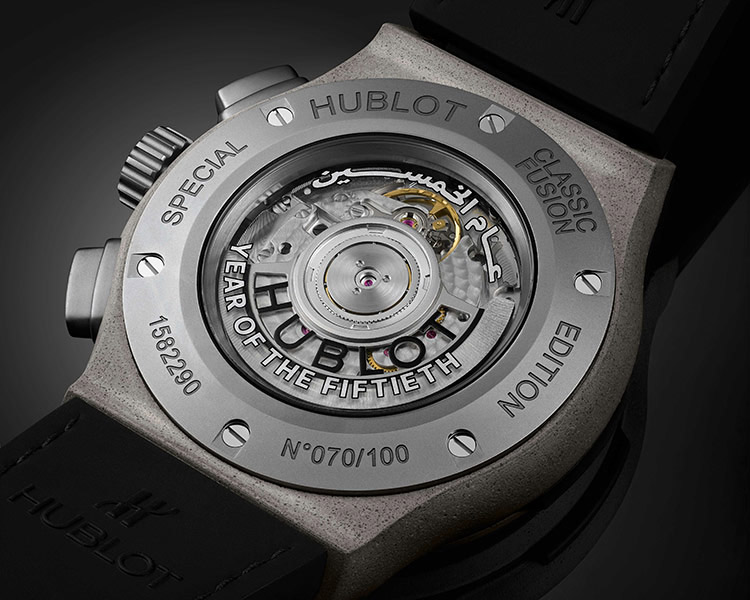
At the Dubai Watch Week, you had a prime position – a brand-new massive stand in a great location; how much time did it take Hublot to get the stand ready?
We were not sure if Dubai Watch Week would happen this year or not, due to the COVID situation. Around the end of June-beginning of July, we decided to participate as it was important in two ways – it was the fifth edition of Dubai Watch Week and the 50th Anniversary of the UAE, and we wanted to do something completely different from what we had done earlier. The booth is quite attractive and my team and I worked very hard. We completed the whole project in literally two months. It was a hectic two months; it is a sign of our strength that we were able to do it because we are proactive. It was a huge challenge; we worked with our local marketing team and our retail team at the HQ for the initial idea. We then worked with our local partner to build the booth.
Your last FIFA watch – the Big Bang Referee 2018 FIFA World Cup Russia – was a huge success and sold out immediately; is Hublot planning a new watch for the 2022 FIFA, and will you increase the number of watches?
We will definitely have a new watch, but we will not increase the quantity. If you remember, in 2018, we did 2,018 watches; so next year, we will probably go by the same logic and have 2,022 watches. We will also have a dedicated watch for the World Cup, exclusively sold in Qatar. So, we will have 2 editions – one international and one local. And, of course, we will also continue the idea of straps in country colours. We never expected our first Connected watch to be that much of a success.
The Big Bang e has the same shape as the Big Bang Unico 42mm; it is the same case, so we have even more straps available – the fun straps in different country colours. We now have a huge quantity of straps – different colours, different materials.
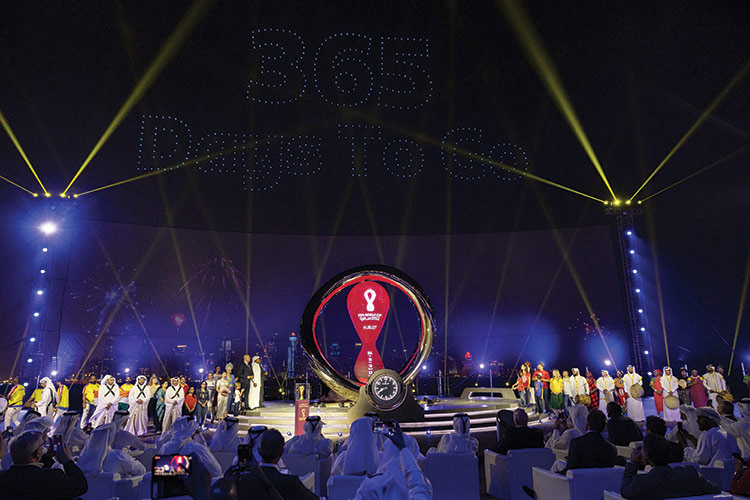
Lately, the number of special editions from Hublot have gone down, with Hublot concentrating more on its core lines; is this the way forward for the brand?
Actually, it has always been that way; there was a perception that we only did limited editions and relied only on the limited editions. Of course, limited editions are important. Not only because they are cool, but because we are creating something different that can be accessed only by a limited number of people in the world. But limited editions have only represented around 15-20% of our annual production, while the remaining 80-85% are our core collections. Our strength really is the core collection, but in terms of PR, the limited editions are really good.


